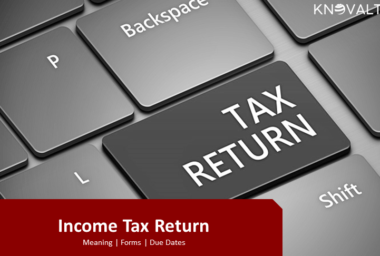03
Apr
Major Amendments in Income Tax applicable for A.Y. 2018-19
-
AuthorRajat Khaneja
-
Comments0 Comments
-
Category
1,552 total views
- Limit for payment of expenses by cash (Both capital and revenue expenditure) reduced from Rs. 20,000 to Rs. 10,000 per day in aggregate per person.
- No Person shall receive an amount of Rs. 2,00,000/- or more, by cash (Sec 269ST).
- For below Rs. 2 crores turnover cases – For Non cash sales (through Digital, Online, cheque, Bank etc.) : Net Profit will be taken as 6% of Turnover/ Gross Receipt. It is 8% For Cash Sales.
- Tax Exemption limit is Rs.2,50,000/- (same as earlier) After that, up to Rs. 5 Lakh, Tax rate is 5% (earlier it was 10%).
- Tax rebate is reduced to Rs.2500 from Rs.5000 per year for taxpayers with income up to Rs.3,50,000 (earlier Rs.5,00,000).
- Surcharge at 10 % of tax levied on rich taxpayers with income between Rs.50 Lakh and Rs.1 Crore. The rate for surcharge for the super-rich, with income above Rs.1 Crore will remain 15%.
- Payment of Rent – Rs.50,000 per month by any Individual or HUF (not subject to Tax Audit requirement) – Deduct TDS @ 5%.
- Capital gain in respect of Land and Building period reduced from 3 Years to 2 Years and Base year shifted from 01/04/1981 to 01/04/2001.
- Corporate tax rate for the account year 2017-18 for companies with annual turnover up to Rs.50 crores (in account year 2015-16) is reduced to 25%. No change in firm tax rate of 30%.
- Donation made exceeding Rs.2000 in cash will be not be eligible for deduction under section 80G.
- Shares of unquoted shares to be taxed at (deemed) fair value.
- Tax exemption will be available on reinvestment of capital gains in notified redeemable bonds (In addition to investment in NHAI and REC bonds).
- Deduction for first time investors in listed equity shares or listed units of equity oriented funds under the Rajiv Gandhi Equity Savings Scheme under section 80CCG of IT act 1961 is withdrawn from FY 2017-18. If an individual has already claimed deduction under this scheme before April 1, 2017, They shall be allowed to avail a deduction for the next two years.
- No tax is applicable for partial withdrawals from National Pension System. NPS subscribers will be able to withdraw 25% of their contribution to the corpus for emergencies before retirement. Withdrawal of 40% of the corpus is tax free before retirement.
- In absence of PAN of the buyer of specified goods, the rate of TCS will be twice of the extent rate or 5%, whichever is higher.
- From Financial Year 2017-18, if Return is not filed within due date, late fee of Rs.5,000 for delay up to 31st December, and Rs.10,000 thereafter. Such fee will be restricted to Rs.1,000 for small taxpayers with income up to Rs.5 lakh.
- A simple one page tax return form is to be introduced for Individual with taxable income up to Rs. 5 lakh (excluding Business Income). Those filing returns for the first time in this category will generally not be subject to scrutiny.
- Time period for revision of tax return cut to one year (from 2 years) from the end of relevant financial year or before completion of assessment, whichever is earlier.
- Where Section 12AA registered trusts modify their object clause, they need to apply within 30 Days to CIT for approval.
- It is mandatory to disclose the Aadhar number while filing IT Return. Earlier it was optional to disclose Aadhar number. Generally the last date of filing IT return is 31 July. Therefore, it is advisable for taxpayer to get their Aadhar number at the earliest.
For more information, contact us on:
M: 98715 55311
E: info@knovalt.com
Tags:
Related Posts
Leave A Comment
Leave A Comment Cancel reply
Recent Comments
- Why registration of a Private Limited Company is not a good idea? : Knovalt on One Person Company (OPC)
- Why registration of a Private Limited Company is not a good idea? : Knovalt on Registration of a Private Limited Company In India
- Rajat Khaneja on Essentials of a valid letterhead
- Udyog Aadhaar Registration Fees on Micro, Small & Medium Enterprise (“MSME”) Registration
- Sonal on Casual Vacancy in the office of Auditor(s) (Non-Govt company)


